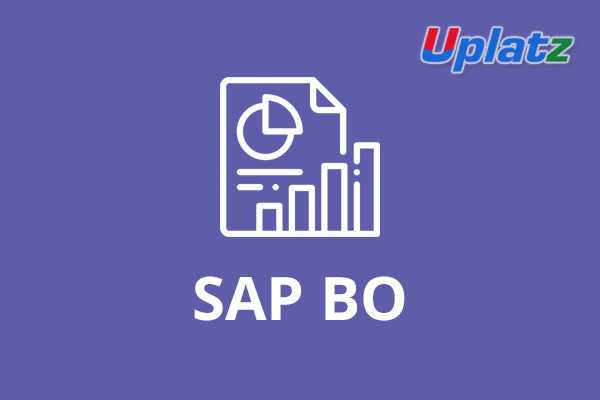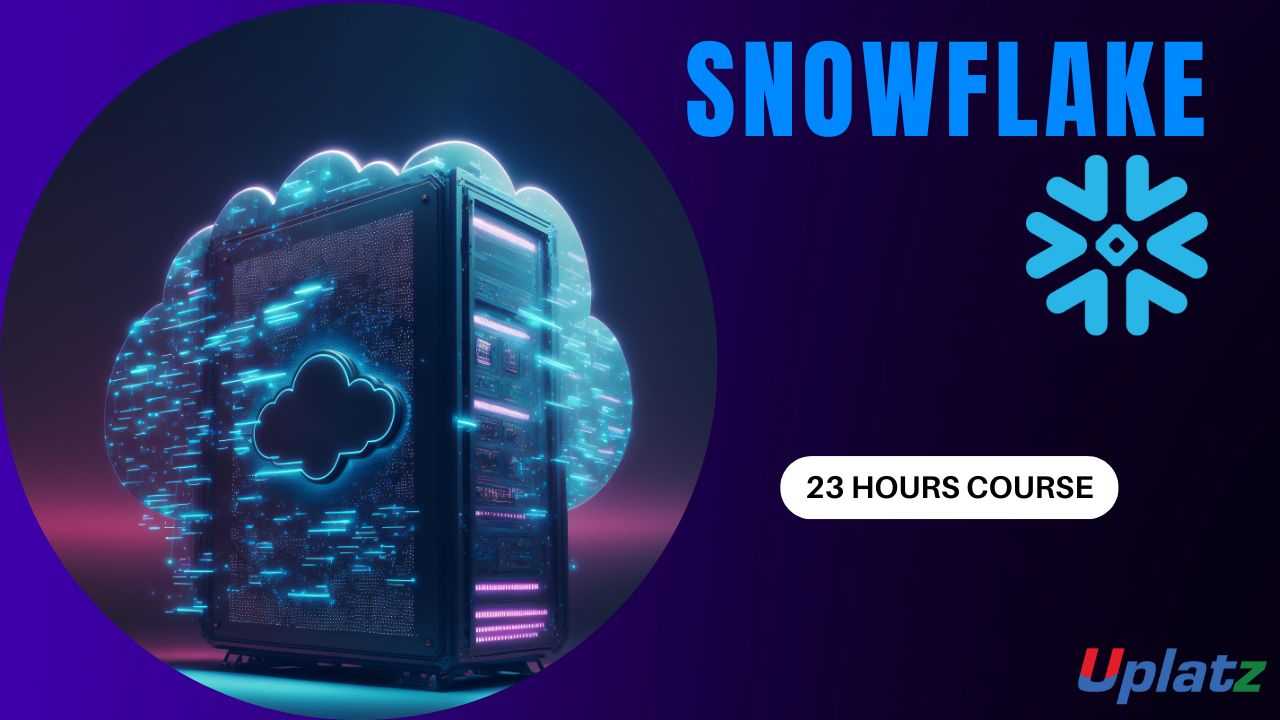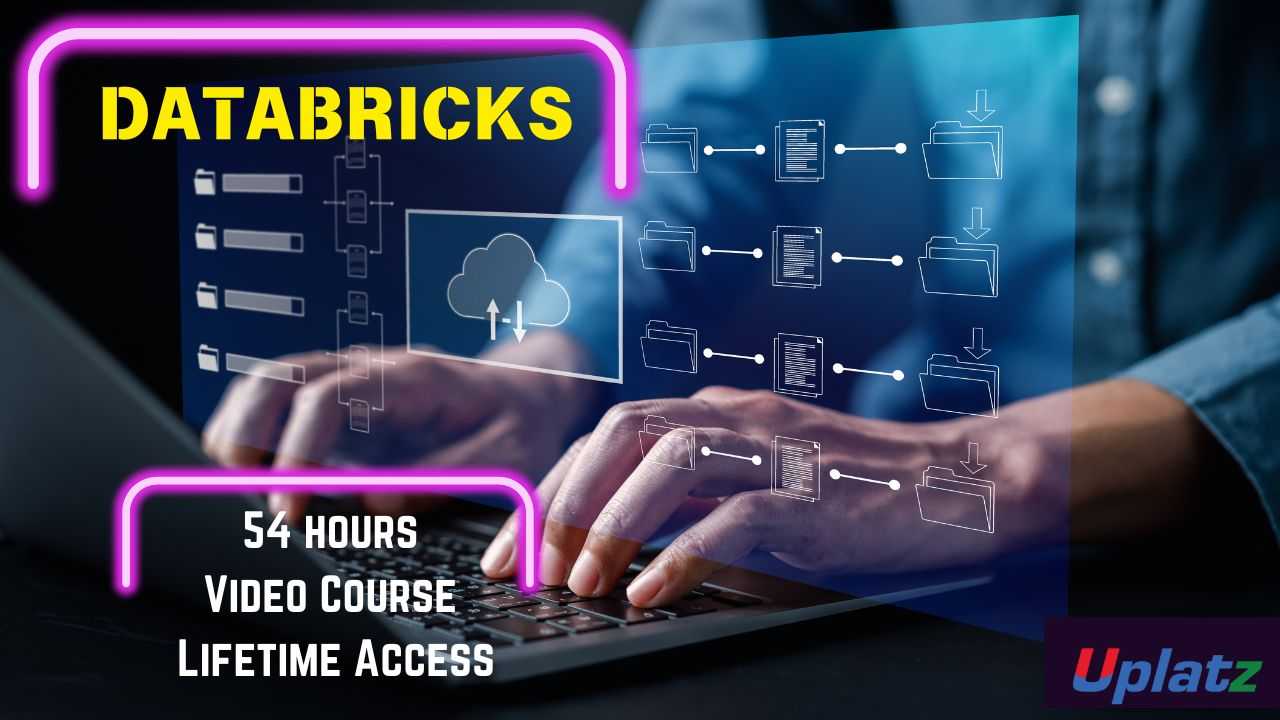Data Engineering with Talend
Learn to design, automate, and manage robust ETL pipelines using Talend for data integration, transformation, and warehousing at scale.Preview Data Engineering with Talend course
Price Match Guarantee Full Lifetime Access Access on any Device Technical Support Secure Checkout Course Completion Certificate 92% Started a new career
BUY THIS COURSE (
92% Started a new career
BUY THIS COURSE (GBP 12 GBP 29 )-
 87% Got a pay increase and promotion
87% Got a pay increase and promotion
Students also bought -
-

- SAP BO (BusinessObjects Business Intelligence)
- 27 Hours
- GBP 12
- 694 Learners
-

- Snowflake for Business Intelligence and Analytics Professionals
- 23 Hours
- GBP 29
- 3789 Learners
-

- Databricks for Cloud Data Engineering
- 54 Hours
- GBP 12
- 1379 Learners

Mastering Data Engineering with Talend – Self-Paced Online Course
In today’s data-driven world, organizations rely heavily on robust data integration tools to extract, transform, and load (ETL) data efficiently across multiple systems. Talend, a leading open-source ETL platform, stands out as one of the most powerful tools available for managing complex data workflows. This self-paced online course, Mastering Data Engineering with Talend, is designed to provide you with in-depth, job-ready skills in data integration and transformation using Talend Open Studio.
Whether you’re an aspiring data engineer, an experienced ETL developer, or a business analyst transitioning into the world of big data, this course equips you with practical and theoretical knowledge to build and manage scalable, high-performance data pipelines. Talend’s intuitive graphical interface, combined with its robust capabilities for handling structured and semi-structured data, makes it an ideal tool for modern data engineering tasks—and this course ensures you learn how to use it to its full potential.
What You Will Learn
This course offers a comprehensive learning experience focused on real-world application. You’ll begin by understanding the fundamentals of Talend Open Studio (TOS) and its role in the data ecosystem. Gradually, you’ll move into hands-on tasks that teach you how to design and execute ETL jobs, connect with various data sources, process different data formats (like JSON, XML, CSV, Excel, and databases), and transform raw data into clean, usable output.
You will also explore more advanced concepts such as:
- Looping and conditional logic within ETL flows
- Error handling and logging
- Job orchestration and scheduling
- Integrating Talend with big data platforms and cloud storage
- Working with web services and APIs
- Designing reusable components and managing metadata
- Deployment strategies and performance optimization
By working on practical examples and mini-projects, you’ll develop a problem-solving mindset and gain the confidence to build robust data workflows applicable to real business scenarios.
Who Should Take This Course?
This course is tailored for a wide range of learners across the data spectrum:
- Data Engineers looking to master a leading ETL tool for daily pipeline management
- ETL Developers seeking to upgrade or modernize their data integration skills
- Data Analysts and BI Professionals aiming to better understand the backend processes behind their data
- Students and Career Changers interested in entering the growing field of data engineering
- IT Professionals and System Integrators working in enterprise data environments
- Project Managers or Architects who want to gain a practical perspective on Talend-based workflows
No prior experience with Talend is required, though a basic understanding of databases and data formats (like CSV or JSON) can be helpful. The course is structured to support both beginners and intermediate learners by starting with the basics and gradually moving into more advanced features.
How to Use This Course Effectively
One of the most important aspects of this course is that it is completely self-paced—you have the flexibility to learn on your own time, from anywhere, and revisit topics as often as you like. To maximize the value you get from this course, consider the following strategies:
1. Set Learning Goals and a Schedule
Start by determining why you’re taking this course. Are you preparing for a job interview? Looking to upskill for a promotion? Planning to work on a specific data integration project? Once you’ve clarified your objective, set a learning timeline—whether it’s 30 minutes a day or a few hours each week—and stick to it.
2. Follow the Modules in Order
This course is structured to build your understanding step-by-step. Don’t skip around, even if some parts seem familiar. Early lessons are carefully designed to provide the conceptual groundwork needed for more complex use cases in later modules.
3. Engage Actively with the Content
Rather than passively watching videos, open Talend Open Studio and follow along with the exercises. This hands-on engagement helps reinforce your understanding and exposes you to the kinds of real-world issues you’ll encounter in practice.
4. Practice with Your Own Data
Once you're comfortable with the provided examples, try creating your own ETL flows using sample datasets from your domain—whether it’s sales data, user logs, inventory records, or anything else relevant to your goals. Applying your learning in a custom context helps deepen your understanding.
5. Experiment with Data Transformations
Play around with various components, like filters, mappers, and joins. Don’t be afraid to make mistakes. Use these trial runs as learning experiences to explore Talend’s full feature set and better understand its logic and behavior.
6. Take Notes and Create a Reference Sheet
As you progress through the course, make notes of frequently used components, common errors, and best practices. This will serve as a quick reference for future projects and interviews.
7. Use Built-in Debugging and Logging Tools
Learning how to debug ETL flows and interpret logs is a key part of becoming proficient in Talend. Use the built-in error reporting tools and take time to understand how to troubleshoot your jobs effectively.
8. Revisit and Reinforce
The beauty of a self-paced course is that you can revisit any section. If a topic didn’t fully click the first time, go back and re-watch or re-do the exercise. Repetition helps solidify learning.
9. Build a Final Capstone Project
Towards the end of the course, challenge yourself to build a full-fledged ETL pipeline from scratch. Choose a dataset, define the transformation logic, build and schedule your job, and simulate a production-like environment. This will not only help reinforce your learning but also give you a strong project to showcase in your portfolio or resume.
10. Earn and Showcase Your Certificate
Upon successful completion, you’ll receive a Course Completion Certificate that validates your skills in Talend. Be sure to include this in your LinkedIn profile, job applications, or resume. Employers value candidates who take initiative in mastering relevant technologies.
“Mastering Data Engineering with Talend” isn’t just a course—it’s a complete training program that empowers you with the tools, knowledge, and confidence to excel in modern data environments. With a growing demand for professionals who can handle complex data workflows across cloud and on-premise systems, Talend expertise can open doors to a wide range of career opportunities in data engineering and analytics.
Whether you're working toward a data engineering role, preparing for a certification, or simply looking to improve your ETL capabilities, this course is your gateway to mastering one of the most versatile and widely-used data integration platforms.
Take control of your learning, practice consistently, and begin building your own data solutions with Talend—starting today.
Course/Topic 1 - Course access through Google Drive
-
Google Drive
-
Google Drive
By the end of this course, learners will be able to:
- Understand Talend architecture and its role in the ETL and data engineering landscape.
- Use Talend Open Studio to create and manage ETL jobs.
- Integrate multiple data sources including databases, Excel, XML, JSON, and delimited files.
- Implement advanced transformations using tMap, tJoin, tAggregateRow, and other components.
- Work with metadata, parameters, and reusable variables for automation.
- Build end-to-end data flows for warehousing and analytics.
- Orchestrate job execution using triggers and control components.
- Handle errors, commit/rollback transactions, and generate logs.
- Design modular ETL pipelines following best practices.
Module 1: Introduction to Talend & ETL
- Role of open-source ETL in big data
- Talend Open Studio overview
- Key ETL & data warehousing concepts
- System requirements and installation
- GUI layout and Talend architecture
Module 2: Working with Projects and Metadata
- Projects, jobs, metadata configuration
- Propagation and component linking
- Data source connections: MySQL, Excel, delimited files
Module 3: Reading & Writing from Various Sources
- Read/write from files, Excel (with tabs), databases
- Logging, error handling with tLogRow
- Capturing metadata and connection setup
Module 4: Basic Transformations
- Using tMap, tJoin, tFilterRow, tSortRow, tAggregateRow
- Lookup operations and data simulation with tRowGenerator
Module 5: Advanced Transformations
- Triggers and row types
- Context variables and parameterization
- Built-in functions (string, date, math)
- Accessing job/component-level details
Module 6: Advanced Techniques
- Type casting across platforms
- Looping components: tLoop, tFor
- Running sub-jobs using tRunJob
- Job scheduling without GUI
Module 7: Hierarchical and Semi-Structured Files
- Parsing XML using XPath
- Working with JSON and JSONPath
- Handling delimited and fixed-width files
Module 8: Context & Global Variables
- Creating and managing variables
- Loading variables from flow
- Best practices in variable usage
Module 9: Orchestration and Execution Control
- Listing, archiving, and deleting files
- Commit/rollback logic in databases
- Shared DB connections, transaction management
- Master job orchestration and error path execution
Module 10: Error Handling and Logging
- Using kill on error and custom execution paths
- Configuring log levels and console outputs
Upon successful completion of the course, learners will receive a Course Completion Certificate from Uplatz, certifying their expertise in Talend for data integration and engineering workflows.
This certificate is a mark of your capability to build and maintain ETL pipelines using Talend, a skill highly valued in enterprise data environments. It also helps you prepare for industry-recognized certifications such as:
- Talend Data Integration Certification
- Talend Big Data Certification
- Certified ETL Developer
You’ll also be well-prepared for roles that require ETL experience in data warehousing, cloud analytics, or big data platforms like AWS, Azure, and Hadoop ecosystems.
After completing this course, learners can explore a range of roles such as:
- ETL Developer
- Data Engineer
- Talend Developer
- Data Integration Analyst
- Big Data Engineer
Talend is widely used in companies across finance, healthcare, e-commerce, and technology sectors for its robust ETL capabilities. With increasing data-driven operations and the push toward cloud-native architectures, Talend-certified professionals are in high demand.
1. What is Talend and why is it popular for data integration?
Talend is an open-source ETL tool that enables users to connect, transform, and manage data from various sources. It's known for its user-friendly GUI, powerful components, and support for big data and cloud integration.
2. How does Talend handle different data sources?
Talend supports various connectors for files (Excel, CSV, JSON, XML), databases (MySQL, Oracle, etc.), cloud platforms, and APIs. Metadata can be defined for each source/target, making configuration reusable and standardized.
3. What are tMap and tJoin components used for?
tMap is used for data mapping, transformation, and filtering between input and output flows. tJoin is specifically for joining two datasets, functioning like SQL joins (inner, left, etc.).
4. How are context variables useful in Talend jobs?
Context variables allow parameterization of jobs, making them dynamic and reusable across environments. They can be set manually, loaded from external sources, or passed during job execution.
5. What is the role of tRunJob and how does it aid orchestration?
tRunJob allows calling one job from another, enabling modular design. It supports passing context variables between jobs and helps build master workflows that manage sub-jobs.
6. How does Talend manage errors during job execution?
You can use triggers like "OnComponentError" to redirect execution. Logging components like tLogCatcher and error paths help track, handle, and recover from failures gracefully.
7. How would you perform rollback in Talend if a database update fails?
Use transaction settings like "Commit every X rows" and configure rollback settings to revert changes if an error is encountered during the job execution.
8. What are best practices for building Talend ETL jobs?
- Modular design using sub-jobs
- Use of context/global variables
- Detailed logging and error handling
- Clear naming conventions
- Reusability of metadata and functions









